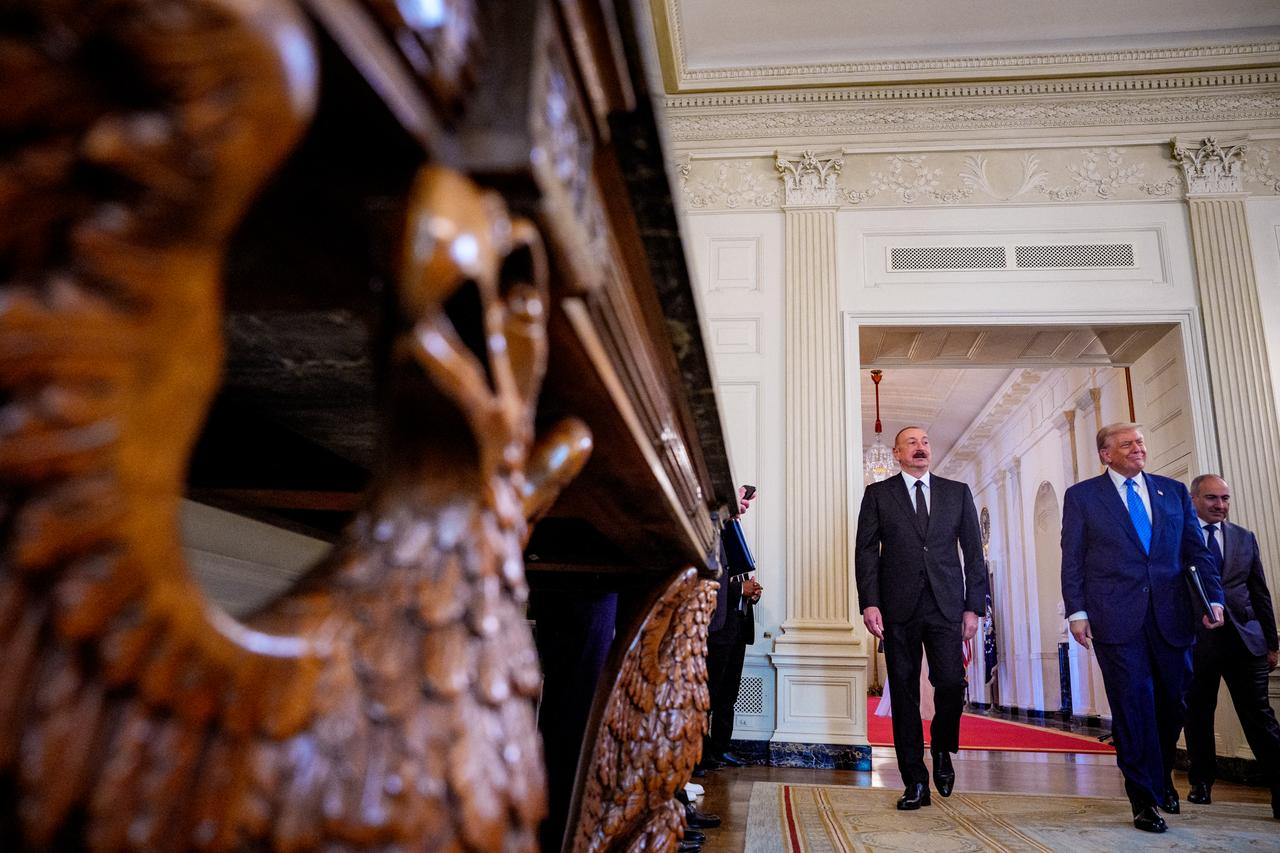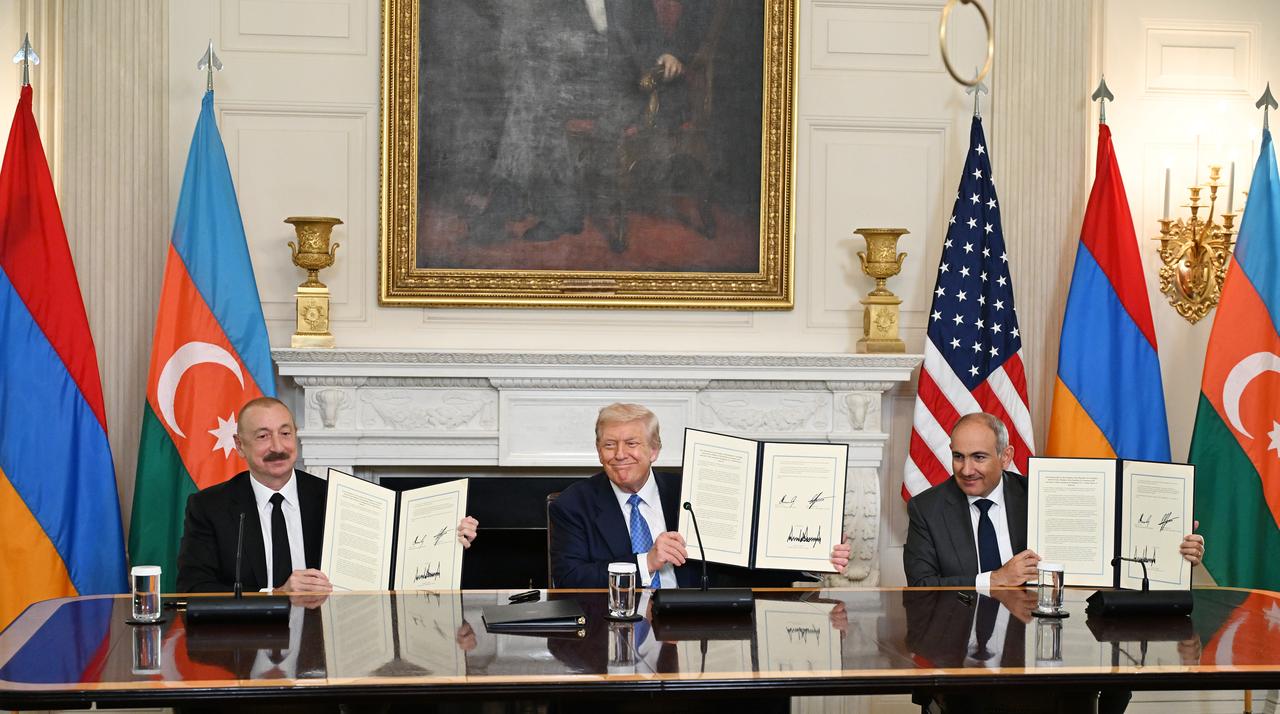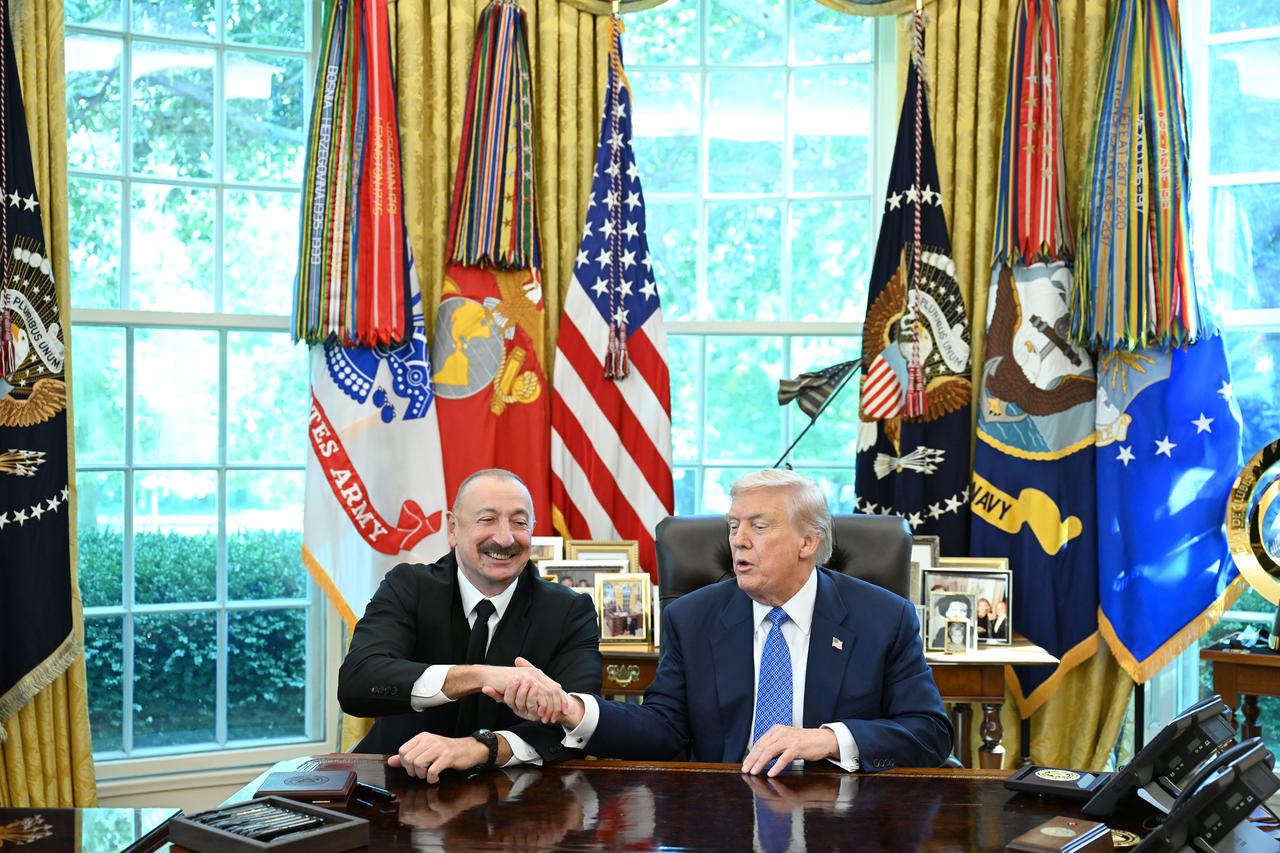
Russia on Saturday cautiously welcomed a U.S.-brokered draft peace agreement between Armenia and Azerbaijan, while its regional ally Iran rejected a proposed transit corridor backed by U.S. President Donald Trump.
The deal, signed Friday in Washington, aims to end decades of conflict between the two former Soviet republics. It includes commitments to cease hostilities, reopen transport routes, and normalize relations.
A key provision calls for establishing a transit corridor through Armenia to connect Azerbaijan with its exclavne of Nakhchivan — a longstanding goal of Baku. The United States would receive development rights for the route, dubbed the “Trump Route for International Peace and Prosperity,” in the strategically important and resource-rich region.
Tehran strongly opposed the plan, saying it would not allow a corridor to run along the Iranian border. “With the implementation of this plot, the security of the South Caucasus will be endangered,” said Akbar Velayati, an adviser to Supreme Leader Ali Khamenei, according to the Tasnim news agency.
He called the plan “an impossible notion” and warned it would become “a graveyard for Trump’s mercenaries.”
Moscow said it would “further analyze” the corridor clause, noting existing trilateral agreements between Russia, Armenia and Azerbaijan remain in effect. “It should not be ignored that Armenia’s border with Iran is guarded by Russian border guards,” Foreign Ministry spokeswoman Maria Zakharova said.
Russia, which has a military base in Armenia, did not intervene in the most recent round of fighting, a decision that has strained its historically close ties with Yerevan. Armenia has increasingly moved toward the West since Moscow launched its 2022 invasion of Ukraine.

Turkish President Recep Tayyip Erdogan on Saturday praised advances in the Armenia-Azerbaijan peace process during a phone call with Azerbaijani President Ilham Aliyev.
Türkiye’s Communications Directorate said the leaders discussed bilateral relations and regional issues. Erdogan said the establishment of lasting peace would contribute to stability across the region and pledged continued Turkish support.
Armenia and Azerbaijan have fought multiple wars since the late 1980s, most recently in 2020 when Azerbaijan reclaimed Karabakh. A lightning Azerbaijani offensive in 2023 drove more than 100,000 ethnic Armenians from the region.
Once the dominant power broker in the Caucasus, Russia has seen its influence wane as the war in Ukraine diverts political and military resources. Both Armenia and Azerbaijan praised U.S. efforts to mediate, with Aliyev even saying he would support Trump’s nomination for the Nobel Peace Prize. NATO welcomed the Washington deal as a “significant step forward.”
In Moscow, however, Zakharova avoided calling it a formal agreement, instead referring to “the meeting of the leaders of the South Caucasus republics in Washington,” though she said it merited “a positive assessment.”

The International Crisis Group said the agreement left “a lot of questions unanswered,” noting much of the text appeared to repackage a March 2025 draft deal reached between the two countries. That earlier agreement stalled after Azerbaijan added new demands, including constitutional changes in Armenia to renounce territorial claims over Karabakh.
Prime Minister Nikol Pashinyan has scheduled a constitutional referendum for 2027, but the issue remains divisive in Armenia. Analysts warned it could still derail the peace process.
The corridor proposal from the White House meeting was “one potentially significant development,” said Crisis Group senior South Caucasus analyst Joshua Kucera, but he cautioned that missing details could become “serious stumbling blocks.”
Olesya Vardanyan, an independent South Caucasus analyst, told AFP the deal reflected Russia’s diminished regional role. While many details remain unresolved, she said it offers Armenians “a promise of a better life and then maybe even more peace in the region.”